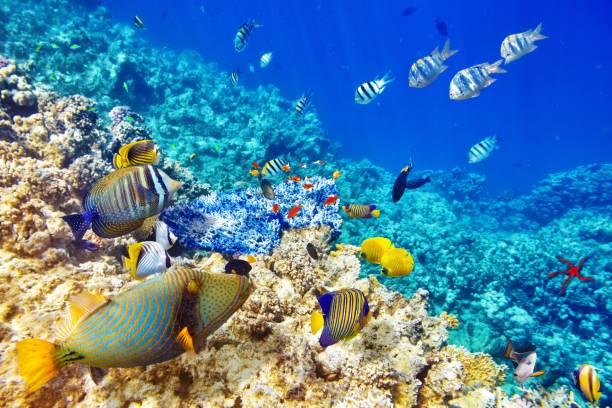Reefs, often referred to as the rainforests of the ocean, are intricate ecosystems teeming with life and playing a crucial role in maintaining the health of our planet’s oceans. In this article, we will explore the significance of reefs, their biodiversity, the threats they face, and the measures being taken to protect these invaluable ecosystems.
The Marvels of Reef Biodiversity:
Reefs are biodiversity hotspots, hosting a mesmerizing array of marine life. Coral reefs, in particular, are home to countless species of fish, invertebrates, and other organisms. The intricate structures created by corals provide shelter, breeding grounds, and feeding areas for an astonishing variety of marine creatures. The vibrant colors and diverse forms of life within reefs contribute to the overall richness of the marine environment.
Ecosystem Services Provided by Reefs:
Beyond their aesthetic appeal, reef delivers essential ecosystem services. They act as natural barriers, protecting coastlines from erosion and the full force of storms. Additionally, reefs support fisheries by serving as nurseries for many commercially important fish species. The economic value of reefs extends to tourism, as they attract divers and nature enthusiasts from around the world.
The Threats to Reef Ecosystems:
Despite their ecological importance, reefs face numerous threats that jeopardize their health. Climate change, overfishing, pollution, and destructive fishing practices are among the primary culprits. Rising sea temperatures, a consequence of climate change, can lead to coral bleaching, a phenomenon where corals expel the symbiotic algae living in their tissues, resulting in a loss of color and vitality.
Conservation Efforts and Restoration:
Recognizing the critical state of reef ecosystems, conservation efforts have gained momentum globally. Marine protected areas (MPAs) are being established to safeguard these habitats from destructive activities. Conservationists are also working on coral restoration projects, utilizing techniques such as coral gardening and transplantation to enhance the resilience of damaged reefs.
Community Involvement and Sustainable Practices:
Engaging local communities in reef conservation is essential for long-term success. Education and awareness programs help communities understand the importance of reefs and the role they can play in preservation. Encouraging sustainable fishing practices, waste reduction, and responsible tourism also contribute to the protection of reef ecosystems.
The Future of Reefs:
The future of reefs depends on collective efforts to address the root causes of their decline. Mitigating climate change, enforcing sustainable fishing practices, and reducing pollution are key components of a comprehensive strategy. Embracing innovative technologies and promoting international collaboration are vital steps towards ensuring the resilience and survival of these irreplaceable ecosystems.
Conclusion:
Reefs stand as guardians of the ocean’s health, providing a myriad of benefits to both marine life and human communities. It is our responsibility to appreciate, protect, and actively contribute to the conservation of these remarkable ecosystems. By understanding the challenges they face and implementing sustainable practices, we can work towards a future where reefs continue to thrive and fulfill their vital role in sustaining life beneath the waves.


